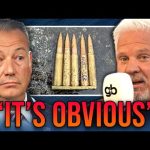NATO Secretary General Mark Rutte has publicly thrown his weight behind President Trump’s push to strengthen the alliance and bring the Ukraine war to a close, a stunning rebuttal to the left’s automatic assumption that America’s assertive posture is somehow destabilizing. Rutte plainly told NATO ministers that allies “fully support the U.S. effort to bring this war to a fair and durable and lasting end,” underscoring that Trump’s engagement is being welcomed at the highest levels of our defensive coalition.
This is no accident of rhetoric — Rutte has repeatedly credited the president with breaking the paralysis that left Europe underarmed and overly dependent on U.S. resolve. In a White House exchange earlier this year he highlighted how recent commitments by European capitals follow momentum created by American leadership and pressure to boost defense investments. That kind of tough-love leadership is exactly what rebuilt deterrence the last time it mattered, and it’s working again.
Europe’s leaders are finally responding with real money, not just press releases, and Rutte has called out the shortfall that has left NATO dangerously hollow. He’s argued — correctly — that relying on the old 2 percent standard won’t protect the continent in the years ahead and that allies must step up quickly to meet capability needs. Conservatives should cheer a president who forces partners to invest in their own defense instead of permanently freeloading on American taxpayers.
Meanwhile, President Trump’s pivot toward pushing for an end to the bloodshed in Ukraine has been mischaracterized by critics as weakness when it’s plainly a realistic attempt to stop endless escalation and bring NATO’s industrial capacity back to the fore. Trump’s discussions with allies and with President Zelenskyy reflect a pragmatic approach: strengthen Ukraine enough to negotiate from strength while stopping a war that has cost lives and strained economies. America-first diplomacy doesn’t mean abandoning allies — it means making sure support is effective and affordable.
Rutte has even gone further, urging more robust defense production and easier procurement between the U.S. and European allies, saying bluntly that Europe must industrialize its defenses and that Trump can help by cutting red tape. That’s the opposite of the hand-wringing you hear from the left; it’s common-sense alliance management: pay more, produce more, and stop expecting the U.S. to bankroll every contingency. This administration’s insistence on capability and burden-sharing is rebuilding deterrence and revitalizing Western industry.
Of course, the Democrats and the legacy media are already spinning this as a crisis of leadership, but their reflexive opposition only reveals their true priorities: virtue-signaling and endless spending without accountability. Real patriotism means recognizing when pressure produces results — when allies finally pony up, when weapon production ramps back up, and when negotiations to end conflicts are pursued from a position of strength. If conservatives don’t defend a strategy that both protects American interests and forces freeriders to pay, who will?
Hardworking Americans should take notice and demand continued toughness from their leaders: higher defense readiness, smarter support for Ukraine that actually secures Western interests, and an end to the foreign-policy laundry list that leaves taxpayers on the hook with nothing to show for it. Mark Rutte’s public endorsement of Trump’s approach is a vindication of bold leadership — and a warning to the paralysis-minded elites that the era of soft deterrence is over.




